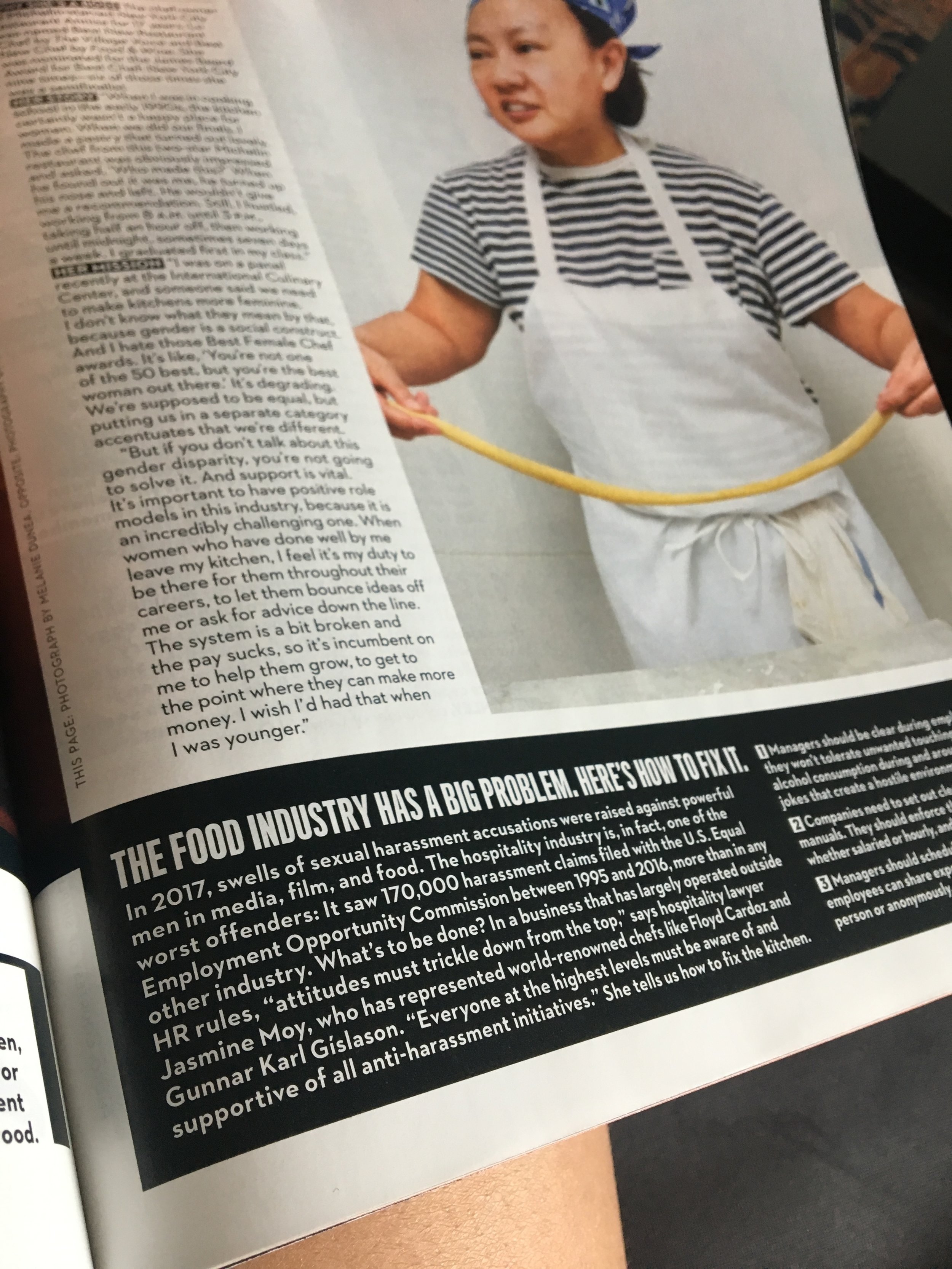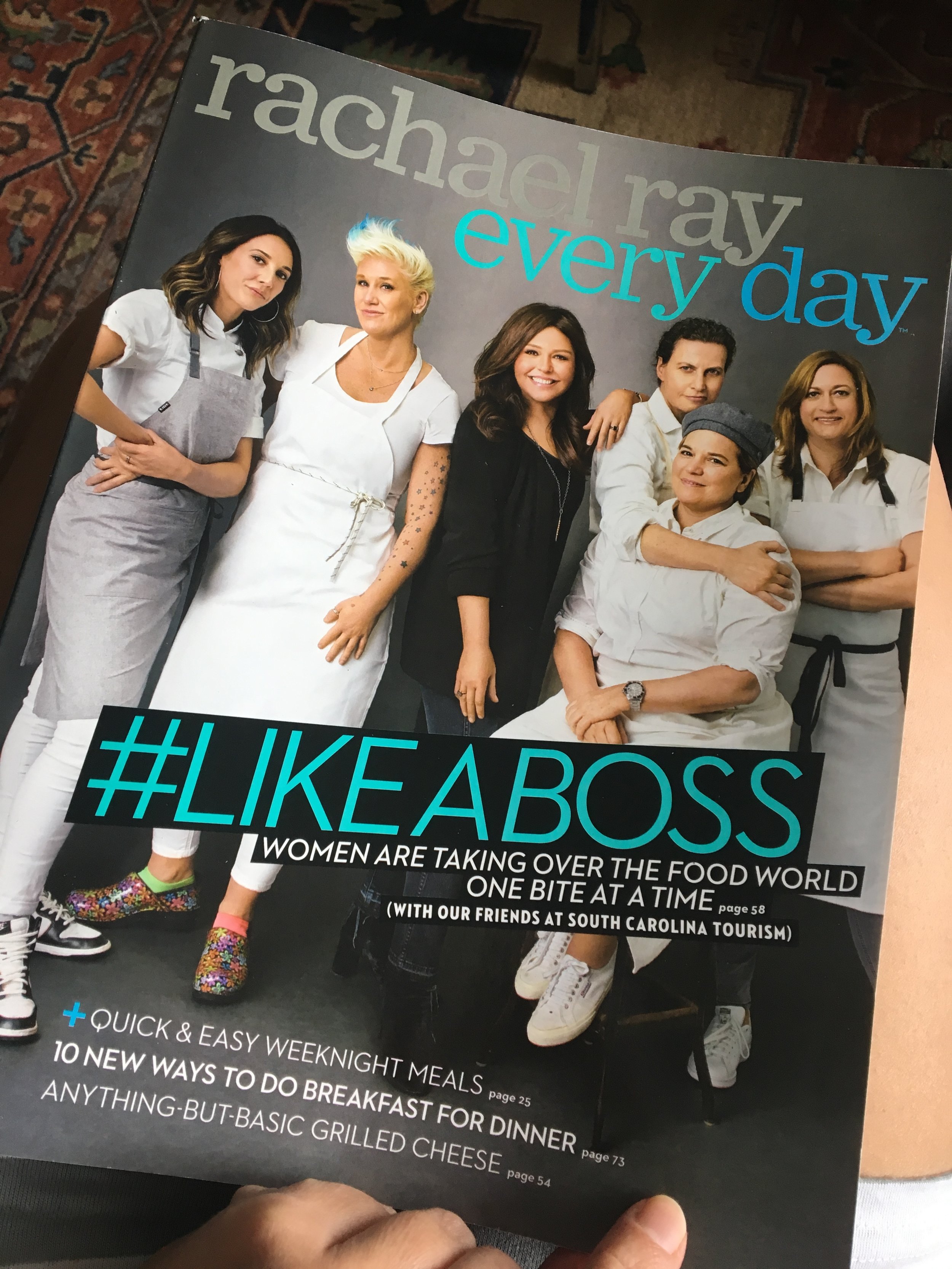Jasmine Moy as part of the Food & Wine Best New Chef mentorship day.
“Until the Government Orders a Rent Freeze, Here’s How Restaurant Owners Should Talk to Landlords About COVID-19 Lawyer Jasmine Moy breaks down how to approach landlords — and why you need an attorney right now” — Eater.com
“Ms. Moy said that once the urgent employee issues had been handled, she expected to spend the next few months in one of two ways. For restaurants that are reopening, she said, she will try to get rent abatements or deferrals. For the restaurants that go out of business for good, her job will be “the assignment of lease and sale of assets,” she said.
“I don’t have any idea at this point how many will fall into that bucket,” Ms. Moy added. “But hopefully they will be few and far between.” — Restaurant Closings Inflict Collateral Damage on Other Businesses By Pete Wells in the New York Times March 24th 2020
“ ‘In a lot of other cities, most folks can find places where the rent is about five percent of their sales. In New York, I know some folks who sign leases budgeting for 10 percent of their revenues as rents, which means their profits are really, really narrow at that point,’ said Jasmine Moy, whose boutique law firm primarily represents restaurant owners.” — The Real Deal: Unpaid bills force NYC restaurateurs and landlords to come to the table
“Most independent restaurant owners personally guarantee their leases, which means that landlords can come after their personal assets—savings, homes, and cars—if they stop paying rent before their lease expires, according to Jasmine Moy, a New York-based hospitality attorney. The only exception is New York City, where leases contain a “good guy” clause that allows tenants to break these leases with proper advance notice; the city also recently passed amendment 1932-a, releasing commercial tenants from liability if they vacate before September 30 of this year.” — The Counter: Before Covid, landlords had the upper hand in restaurant lease negotiations. Now they’ll settle for tenants who can make the monthly rent.
“‘This is a no-brainer for restaurants,’ said Jasmine L. Moy, a lawyer in New York who negotiates hotel restaurant contracts. “If they can get these deals, they take them.”
Chefs in the city are quick to complain that independent restaurants are being strangled by soaring rents and creeping payroll costs; meanwhile, the smaller spaces they may be able to afford can be nearly impossible to set up in a way that satisfies the city’s health and building codes. For many restaurateurs, hotels look like the only way out.
Or, as Ms. Moy puts it, ‘The future of dining is going to be in hotels.’“ -- Who's Setting up Shop in Big Hotels? By Pete Wells in the New York Times March 8, 2017
“'The right to terminate any contract for ‘bad acts’ is (or should be) a standard portion of every service contract, especially if the action of one party would reflect poorly on the other,' says Jasmine Moy, a New York-based hospitality lawyer.”
PROFILE BY First We Feast: "An Insider's Look at the Life of a Restaurant Lawyer"
“Chefs often don’t understand that just because it’s their name, image and likeness — things that are intrinsically connected to their being — doesn’t mean that they will always have full control over the use of it,” says restaurant lawyer Jasmine Moy, who represents restaurants and chefs in the hospitality space."
“Tipping is an outdated, discriminatory system, but for many front-of-house workers in America, it’s just the way it is. And for however many restaurant lobbying groups fight to keep tipping the status quo, plenty of operators — from Salt Bae to José Andrés— still fall into legal hot water, especially when it comes to mismanaging the tip pool, or how employees share tips.
Eater turned to lawyer Jasmine Moy to learn more about how tip pools should really work.”
“Generally, partnership agreements, once entered, are hard to unwind,” says New York-based hospitality lawyer Jasmine Moy. “I always tell people that entering into business with someone is like marriage.”
Interview for Rachael Ray Everyday Magazine:
“Jasmine has skillfully negotiated multiple entertainment and other contracts for us with our literary agent, production company and the Bravo TV network. Her expert advice and negotiating skills have saved us large amounts of money as well as time. She is an invaluable advisor to us in all aspects of our business.”
“As a young chef in NYC, when it came time to make some crucial decisions regarding projects and contracts, I couldn’t imagine doing it without Jasmine. She was not only super informative but she was super supportive. I really felt like I had someone on “my team”. She helped me get a fair deal and taught me to not undervalue myself. I trust Jasmine to the fullest!”







